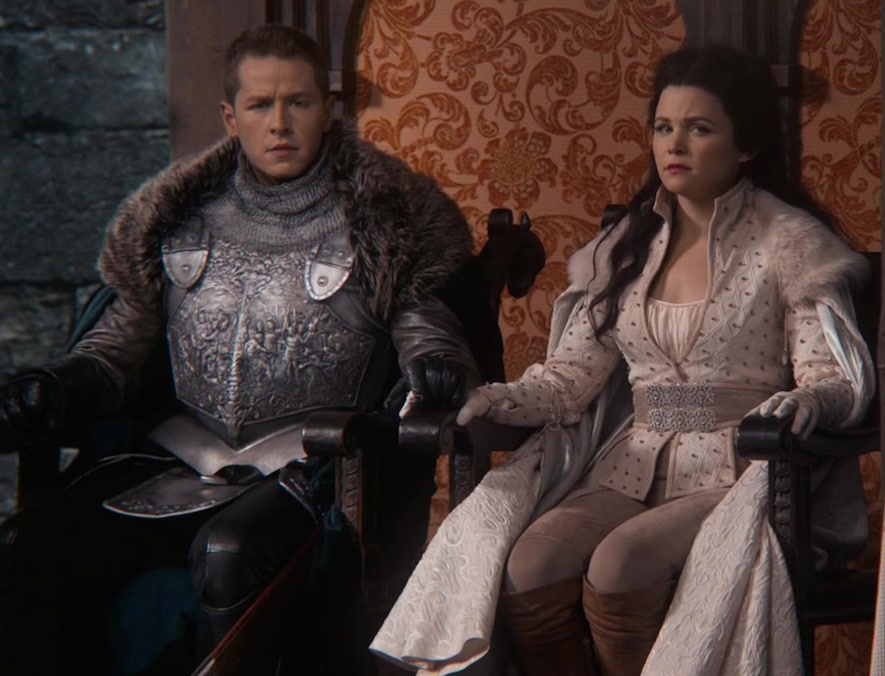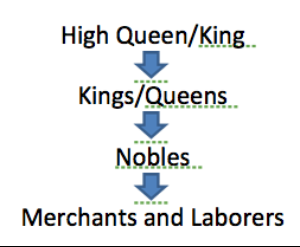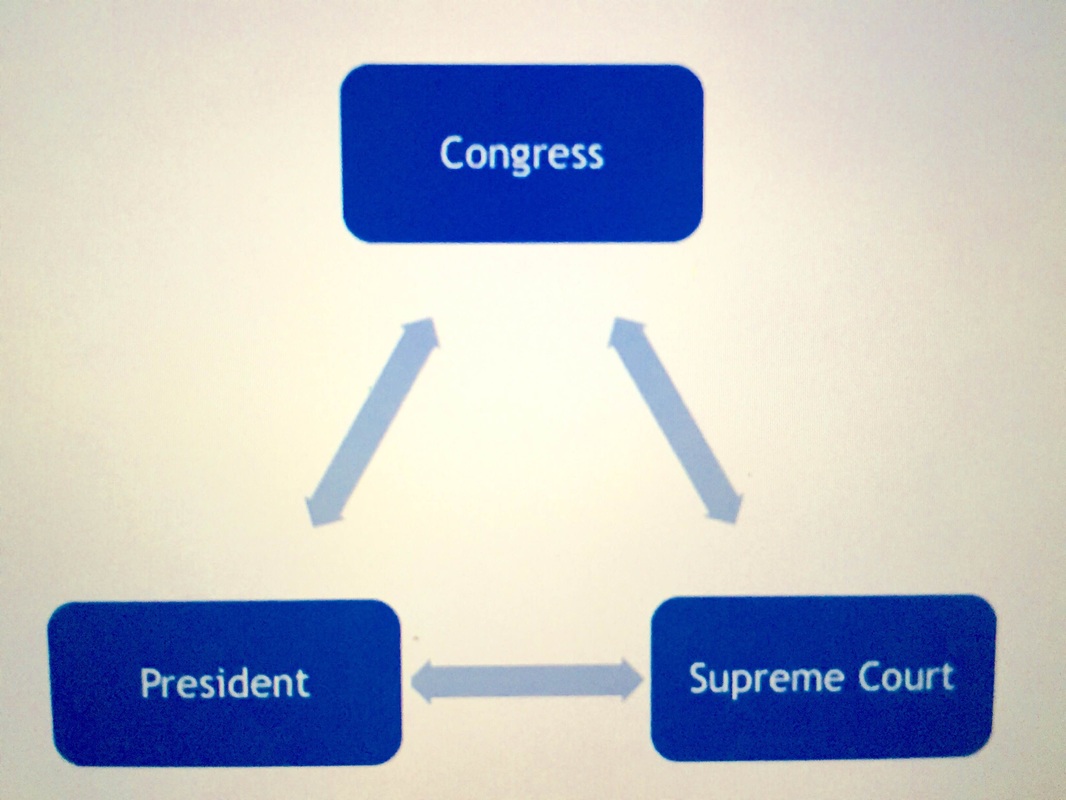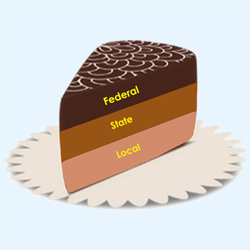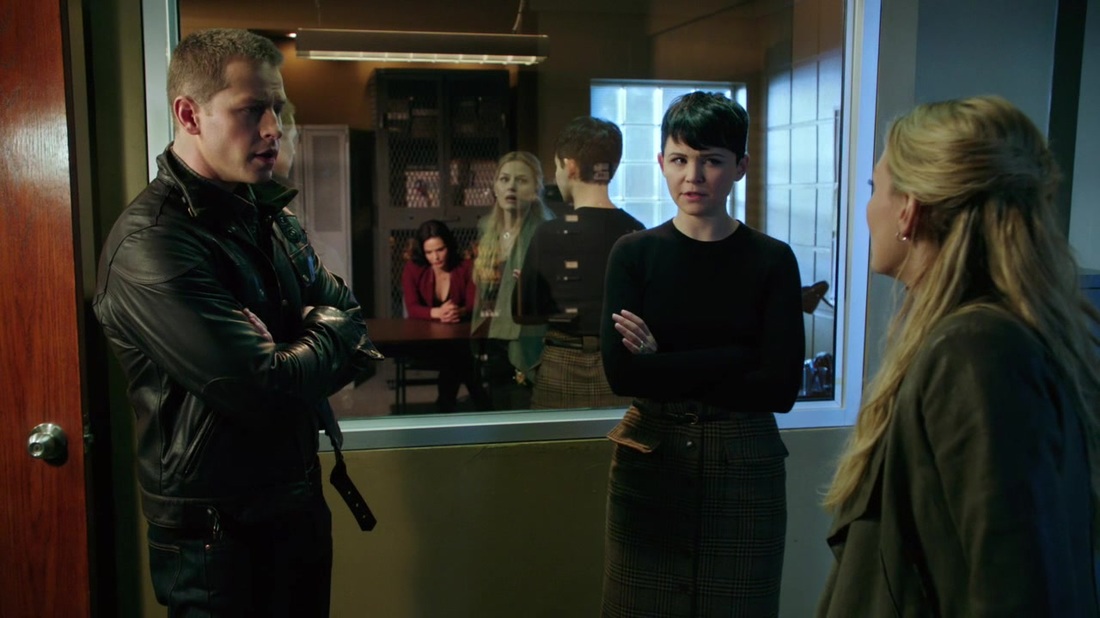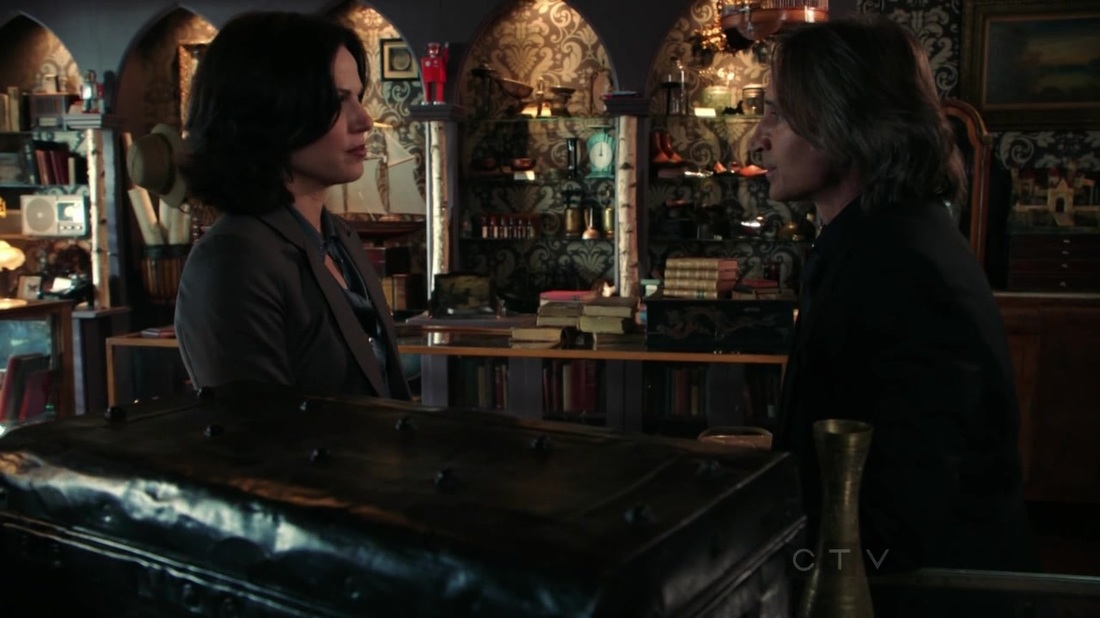|
We Are Both: Governing in Once Upon a Time by Teresa Martin--@Teresa__Martin From the opening scene in the pilot of Once Upon a Time those who have spent way too much time taking political science courses were impressed by the differing systems of governing presented. Prince Charming wakes up Snow White, the Queen. Except when Regina comes into the wedding, someone calls her the Queen. Snow replies that she’s not a Queen, she’s a witch! Before somebody can start quoting Monty Python, the scene changes to modern times and the ex-Queen Regina is a mayor. Ah. The political science geeks are going: “so it’s a monarchy in the Enchanted Forest and a representative democracy in Storybrooke.” While there may be a good many people shushing the government geeks saying, “you’re the only one who cares!” a closer look at the shenanigans of our fearless leaders in Once Upon a Time depend a great deal upon what form of government and rule to which they ascribe. Of the many definitions of governing in Merriam-Webster, the one that is most reflective in the context of Once Upon a Time is “the organization, machinery, or agency through which a political unit exercises authority and performs functions and which is usually classified according to the distribution of power within it.” Key words within this include “organization, political unit, authority, and distribution of power.” In the Enchanted Forest the governing model is the monarchy. A monarchy is the form of government in which there is “. . . undivided rule or absolute sovereignty by a single person . . . a government having a hereditary chief of state with life tenure and powers varying from nominal to absolute (Merriam-Webster).” Snow White as Queen holds the highest rank and rule, having apparently reached that status when she merged her father’s and George’s kingdoms through conquest. Charming’s status as a prince implies that his power is not equal to his wife’s. While it appears there are other kingdoms, such as King Midas’, the main authority is vested in Snow White. Therefore the hierarchy in the Enchanted Forest’s monarchy could be as shown: If this is the model, Snow would be in the position of High Queen, a monarch who rules over other lower ranking monarchs; below her would be characters such as King Midas, and other royals. Below them is the nobility, perhaps Maurice, as he does not appear to be a king, and then the merchants and laborers make up the rest of the populace. Storybrooke is far different being set in the United States. America is a republic with both a federal and state government, the former having three branches with interweaving forms of checks and balances. Congress, the body of the legislative branch arguably has the most power since it is given the authority to levy taxes, ratify treaties, declare war, and authorize military engagements. Often in popular culture these powers are attributed to the President; however the President may only ask Congress to consider an action or legislation, but he cannot make them himself. His job is to enforce the laws and act as Commander in Chief of the armed forces. Neither Congress nor the President through an executive order may make/sign any law or create a mandate that violates the United States Constitution, the “supreme law of the land” (Article VI). The Supreme Court determines whether this has occurred and, if they rule in the affirmative, the law or order is null and void. This system is designed to avoid too much power being held by one person so that tyranny or hasty and imprudent actions may be prevented through a long process of deliberation. The Constitution’s Tenth Amendment affirms that anything not enumerated in the document is given to each state. The rationale for this is that normal governing should be done at the local level, given the diverse geographical and ethnic makeup of the states. Each state has its own constitution and branches of government similar to the above model. Within the state there are county laws, and within each city there are different laws and statutes. The last, city law, applies to Storybrooke. The following model sums up where Storybrooke’s government fits within this complex system: In Season One, at least to outside observers, this model is followed. There is clearly a mode of rule using a strong mayor model. Regina plays the role of mayor and works within the system, albeit in a corrupt manner, always ensuring that she receives her desired outcome. Emma’s arrival changes this and we see her elected sheriff democratically. In this role, Emma quotes and abides by federal, state, and city law. In “The Stable Boy,” Emma follows the requirements for a warrant and probable cause before she searches Regina’s mansion. Regina’s literacy in the law is illustrated by her own demand for a warrant before her property is searched. Another example of following federal law is when Mr. Gold is present during Mary Margaret’s questioning, and her explicit refusal of his council, as is also her right. The Outsider mentions Maine state law concerning texting and driving when he is talking to Emma during “In the Name of the Brother.” The presence of sisters illustrates that the Constitution’s First Amendment guaranteeing the right to exercise religion is also affirmed in Storybrooke. “Dreamy” shows the sisters practicing their faith, wearing distinctive clothing, and operating ministries within the community freely. There are also ways in which the laws followed in Storybrooke are selective. Season One showed our beloved town with laws more liberal than any state when it comes to concealed carry of firearms. Emma is immediately deputized by Sheriff Graham with the requisite firearm, without training or the obtainment of a license. This is more reminiscent of a situation found in a John Wayne Western, instead of present-day Maine. Season Two brings this selectivity to a new level. Regina is apparently no longer the mayor, and control of Storybrooke is claimed by Charming in “We Are Both.” The line “I didn’t vote for you” from Monty Python comes to mind when Charming makes decisions and keeps law and order through his use of rhetoric and authority as Prince. Without debating that this had an effective outcome, his actions are far from what is permitted in a municipal model, and rather resembles the monarchy in the Enchanted Forest. How absolutely Charming had been practicing this during Emma’s absence is seen in the tension that results when she returns and becomes the sheriff again. In “The Cricket Game,” actions are proposed by her parents, and Emma responds with the need for evidence. Her implications of innocent until proven guilty are references to the rights of the accused as laid out in the Constitution. Despite this, de facto, Storybrooke is now ruled by a royal family since the Charmings are involved in governing decisions. Another aspect of governing was recently addressed in “The Cricket Game.” While there are many powers given in the Constitution explicitly, this does not mean that they are absolute, not open to interpretation, and cannot be changed. However, legally, this has to be done through a Constitutional Amendment, a lengthy process that involves both the states, the federal government, and is very rare. Only twenty-seven have been made since 1791. Present-day television shows often showcase topics of controversy within the plot of an episode. With “The Cricket Game,” the writers briefly tackled one of these: capital punishment. This is a complex and sensitive issue and it is tempting to have the hero reflect the opinions of the writers, with the result that the dialogue takes on a pedantic tone. Moreover, a trend toward the stating of one position, while having the opposing view expressed by villains who use straw-man rhetoric is a trap that can hinder the credibility of the argument. The writers of Once Upon A Time ingeniously avoided this by having the affirmative and opposing views presented by the heroes: Charming and Snow. Moreover, they kept the arguments to the universal principles, widening the perspective. When is it right to kill? What is the difference between capital punishment and a soldier killing enemy combatants in war? Is a preemptive strike in the form of tyrannicide ever licit? Both Charming and Snow make strong adverse cases when given the chance to execute Regina in the Enchanted Forest. Charming claims that leaving her alive is too dangerous, while Snow believes that banishment is the appropriate punishment. In hindsight, Charming was right in that, if Regina had been executed, untold misery and death would have been prevented, but Snow was also correct in following her conscience by objecting to that execution. While ultimately the solution was made unilaterally by the Queen, this accurate and open-minded view to both sides of the issue is part of what contributes to the success of the show. No fan is alienated by judgmental writing and all are left with something to ponder. Since lightning rarely strikes twice, further controversial subjects perhaps should be avoided. However, in this story-line the moral dilemma of enforcing law, an essential aspect of governing, was presented well and fit within the Enchanted Forest Kingdom. A similar debate in Storybrooke about the fate of the Outsider during “In the Name of the Brother,” ultimately decided by the Charmings, shows that the town is now operating more as a monarchy with judgments informed by, but not held to, the laws of the American Republic. One may ask where Rumplestiltskin and Regina fall in this melding of Storybrooke and Enchanted Forest government. The simple answer is that they don’t. They are laws unto themselves, purveyors of anarchy, the “absence or denial of any authority or established order (Merriam-Webster).” Rumplestiltskin has no reason to recognize the leaders of both worlds. He has magic, they do not. So he does what he wishes if it will get him what he wants: his son. Regina is also in the same position, with one caveat: she is forced as of Season Two to play nice with the royal family because her son wants her to. However, that appears to be changing with the betrayal she experienced in being falsely accused of murder. She is falling off the wagon of law and order and heading back to anarchy. These deliciously evil anarchists and the monarchists have plenty of tension between them as of “In the Name of the Brother.” For the sake of engaging, intelligent drama, a change in these conflicting worldviews, thankfully, is not likely to happen anytime soon. Works Cited Merriam-Webster.com United States Constitution
0 Comments
Leave a Reply. |
OriginsExplore the Arthurian legend surrounding Lancelot, take a trip into the woods to discover the mythology behind Red Riding Hood or learn more about a modern day hero called Snow White. Origins provides unique insights and perspectives from talented writers into the characters we know and love, going far beyond the boundaries of Storybrooke. Archives
August 2016
Categories
All
|
